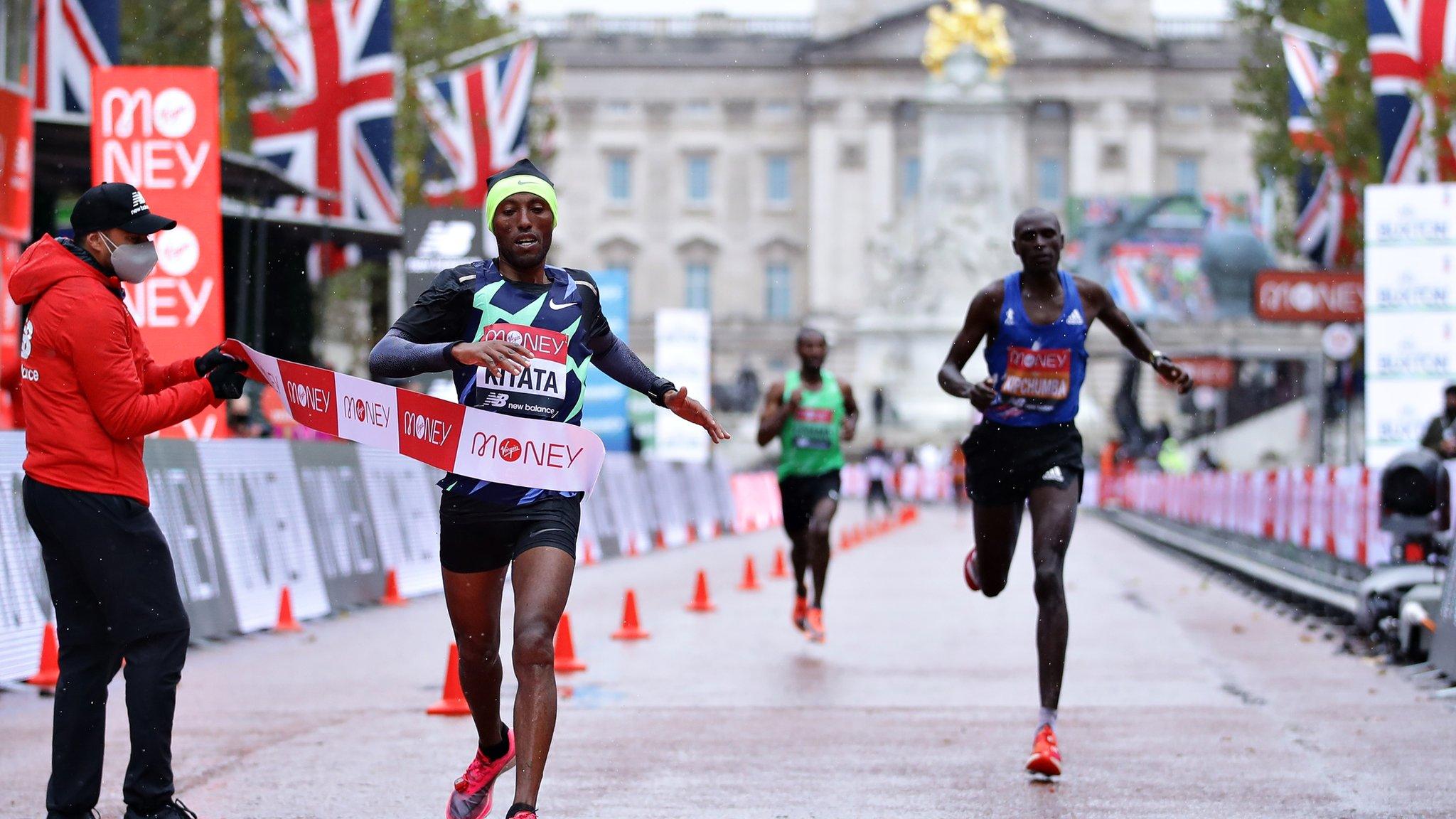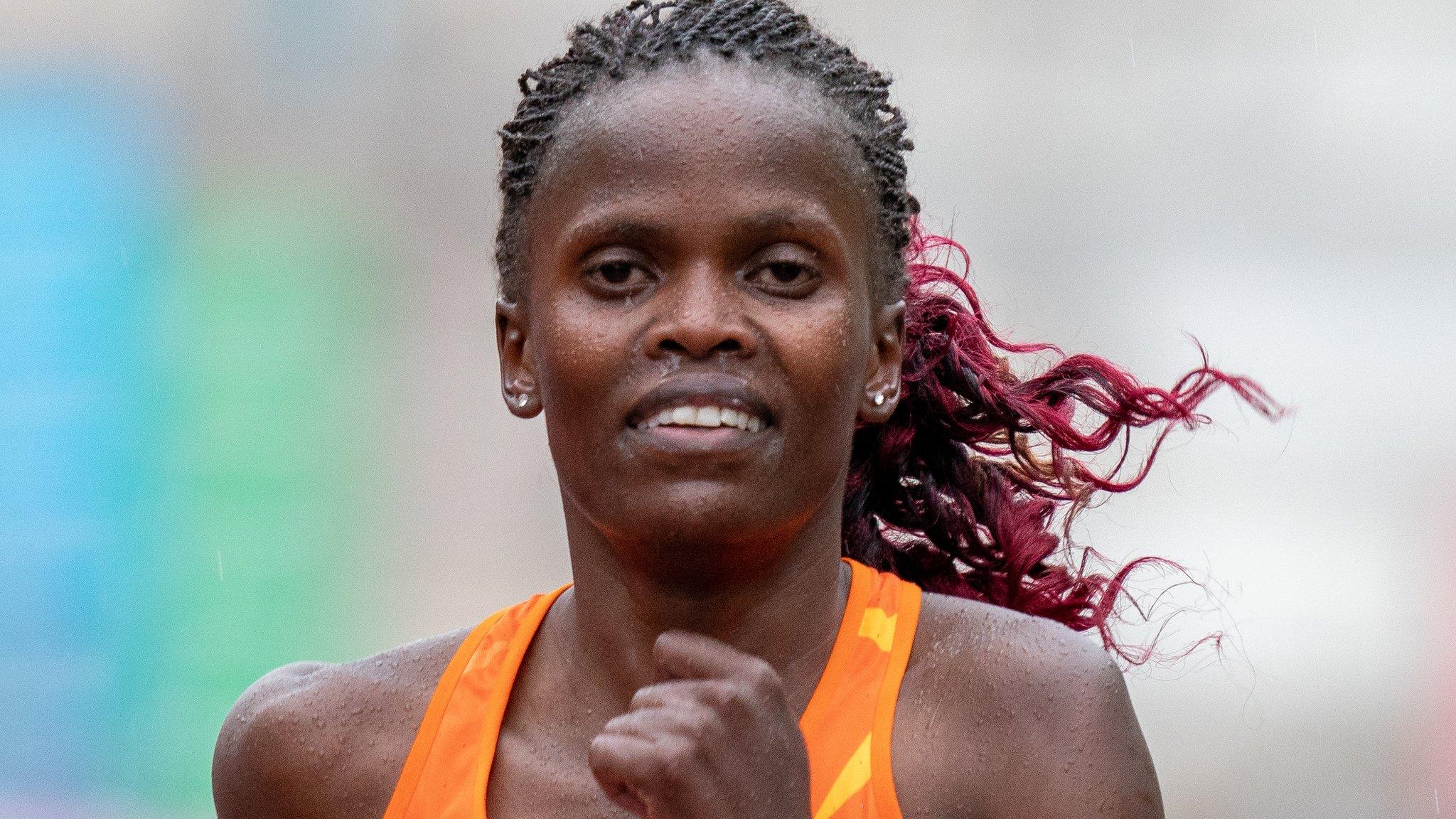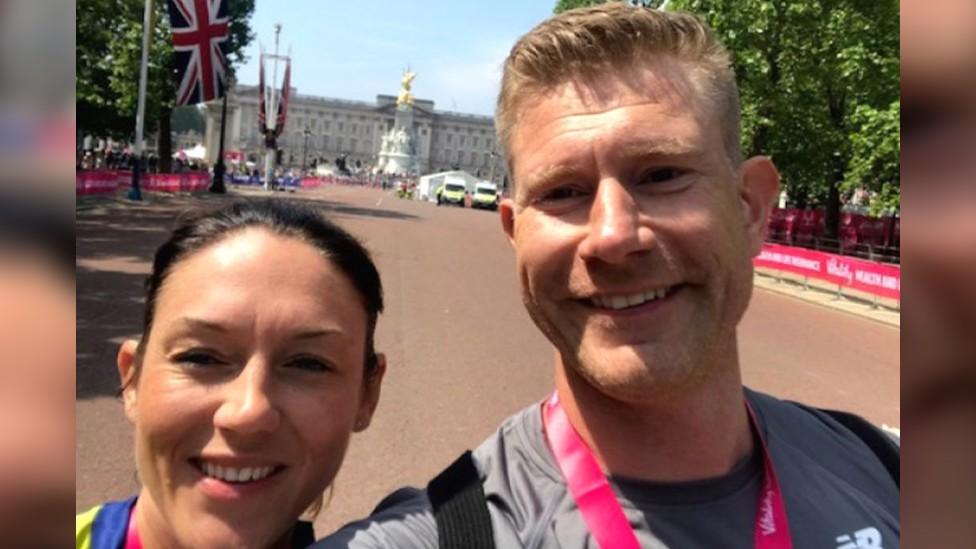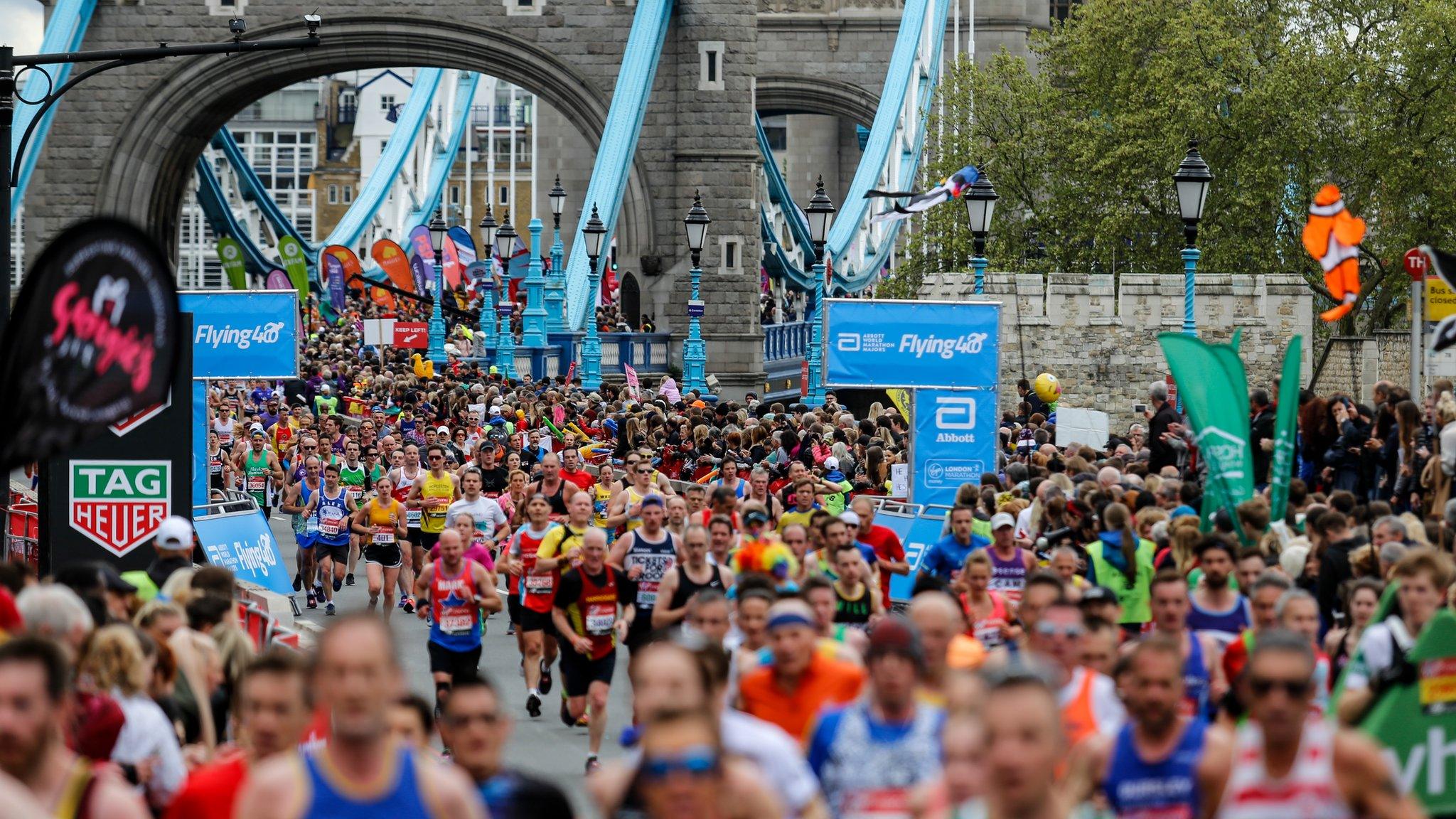London Marathon: Runner feared losing leg after Covid complications
- Published

Simon Gallo walked laps of the perimeter of Ipswich Hospital to complete last year's virtual London Marathon
A man who feared he might lose a leg after he contracted Covid-19 and a skin disease is preparing to run his 26th consecutive London Marathon.
Simon Gallo, 62, of Stratford St Andrew, Suffolk, developed coronavirus symptoms in March 2020.
He then developed a skin condition which he likened to a "zombie flesh-eating thing".
Mr Gallo said he could not imagine missing the event and was "chuffed to bits" he could take part again.
After contracting Covid, he developed a rare skin condition called pyoderma gangrenosum.
He said it took advantage of a small cut in his right leg, describing it as like a "zombie flesh-eating thing, where - to be gory - lumps of flesh and blood and god knows what just fell off".
Following treatment, Mr Gallo managed to recover although he said his leg was a "bit of a messy scar".
He said his health was "much improved" since last year when he walked laps of the perimeter of Ipswich Hospital for 2020's virtual London Marathon.
Mr Gallo intends to run the race in the capital on 3 October dressed as "the Mad Medic" in surgery scrubs, and carrying flags for two charities he is supporting - the NSPCC and the Colchester and Ipswich Hospitals Charity.
"I could not imagine not being there," he said. "I'm not going to be running fast.
"I'm going to be walking some of it because I'm not fit."I'm just chuffed to bits that I'm able to do it and that it's on."Mr Gallo first took part in the 26-mile (42km) race in 1996 when he ran with a friend for the British Diabetic Association."I've never experienced the euphoria I experienced that day crossing the line," he said.

Find BBC News: East of England on Facebook, external, Instagram, external and Twitter, external. If you have a story suggestion email eastofenglandnews@bbc.co.uk, external
Related topics
- Attribution
- Published17 August 2021

- Attribution
- Published12 August 2021

- Published30 July 2021

- Published6 July 2021

- Attribution
- Published21 January 2021
